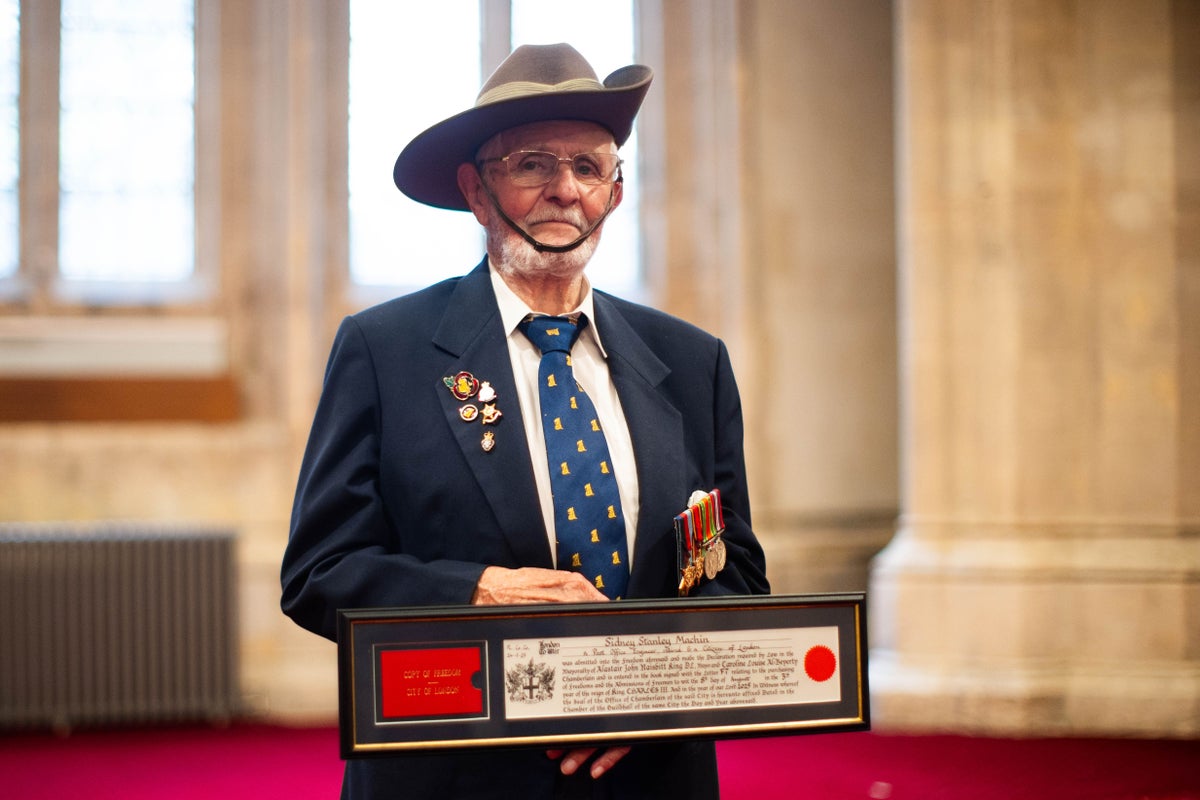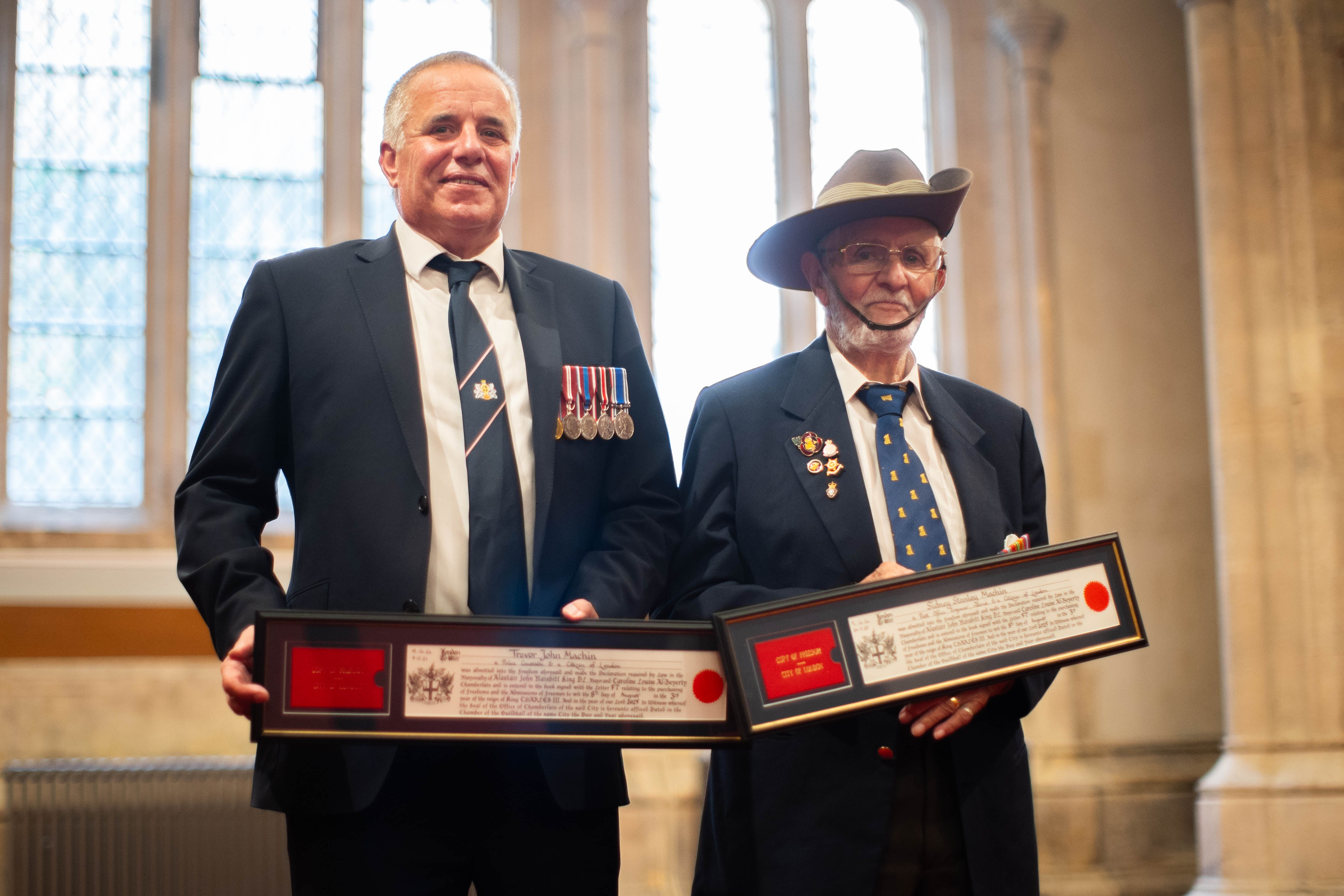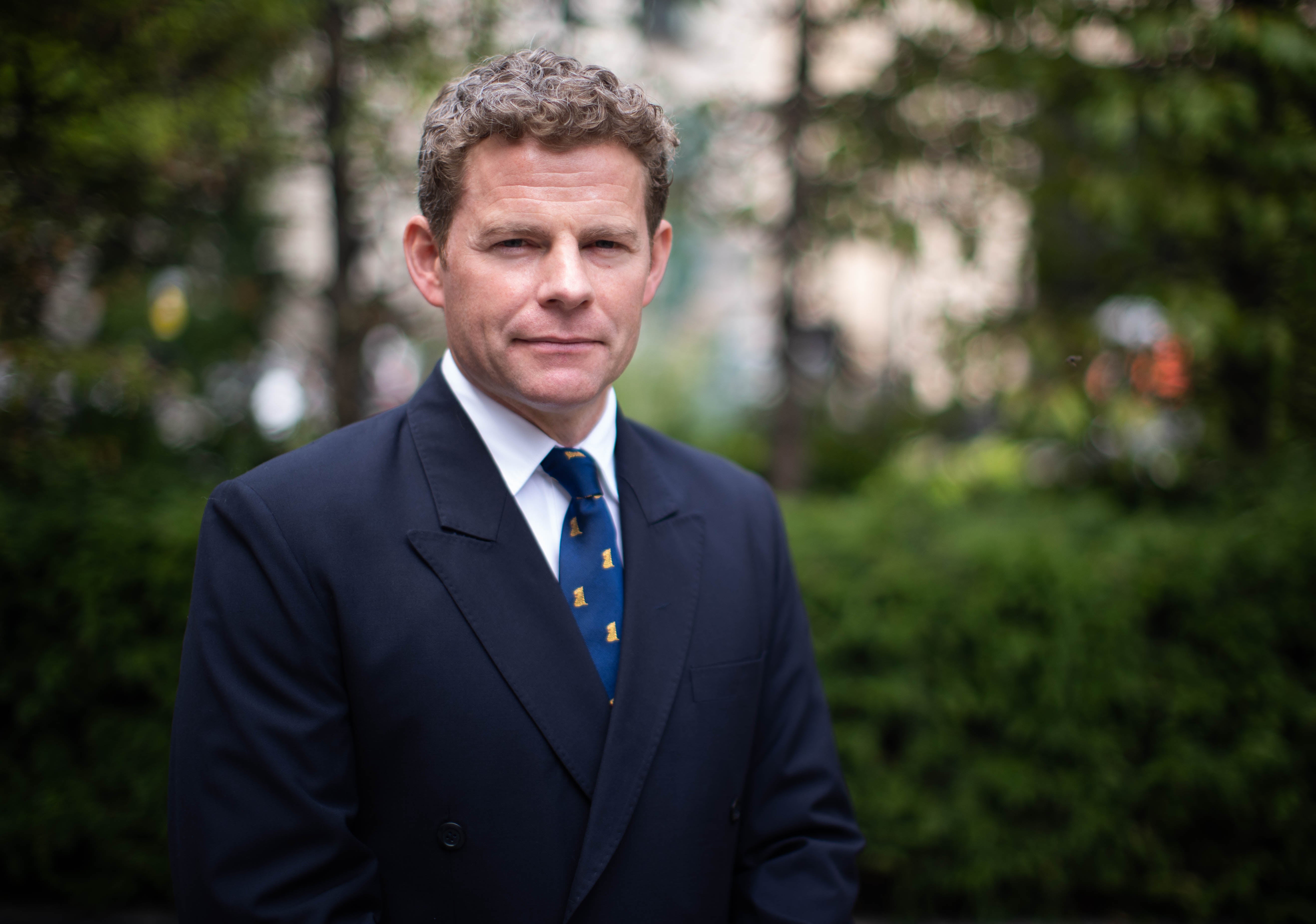
One of the last surviving “Chindit” soldiers from the Second World War’s Burma campaign has received the Freedom of the City of London.
As a young man of about 19, Sidney Machin, now 101, landed behind enemy lines in a glider at night in the jungle, as part of a special forces unit in Burma (now Myanmar), which wreaked havoc on Japanese supply lines and infrastructure.
Mr Machin, from Dorset, received his honour alongside his son Trevor Machin, 64, of Milford-on-Sea, Hampshire, who retired two years ago after nearly 35 years in the City of London Police.

After Friday’s special Guildhall ceremony in the City, where he proudly wore his Burma Star medal and 77th Brigade tie, Mr Machin senior said he did not think of himself as brave or heroic adding: “I never really think about it really.”
He recalled that Burma was “hard going and I was a young lad, only 19”.
The father-of-five said he was proud of his son, who was also made a freeman, as “I think he deserved it as well”.
The Chindits were a British and Indian special forces unit which operated in Burma during the Second World War, and were known for their deep-penetration jungle warfare tactics.
Mr Machin senior said: “The Americans dropped us behind the lines. We stayed there about five months and we marched out. It was a bit tough going but it is all water under the bridge.
“We lost quite a few.
“Some particular friends of mine never made it, but it was just your luck really.”
The Freedom is one of the City of London’s ancient traditions and is a way of paying tribute to someone’s outstanding contribution to London or public life, or to celebrate a very significant achievement.
Mr Machin senior, who was born in Tottenham, north London, initially served in Chindit HQ as a signaller, before returning to 1st King’s (Liverpool) Regiment and flying into the “Broadway” landing strip by glider in March 1944.
“Chindit” is derived from the Burmese word chinthe, a mythical lion-like creature which guards temples.
Broadway was the code name for a jungle landing strip used during Operation Thursday in the second World War. It was a key part of the Chindits’ campaign, a series of long-range penetration operations behind Japanese lines.
Gliders and, later, Dakota transport aircraft, were flown into Broadway to deliver troops, supplies and equipment.
The landing strip was hastily constructed in a logging clearing, posing significant challenges because of the terrain and weather.
As a member of 81 Column, 77th Brigade, Mr Machin senior was part of a floater platoon operating around Broadway.
On its closure, the 1st King’s marched across to support 111th Brigade at the stronghold codenamed Blackpool.
While supporting 111th Brigade, a sliver of bamboo pierced his foot and became infected, requiring him to be carried on an officer’s horse for several days to be treated in hospital in Meerut.
He returned to Regimental HQ in Liverpool and then to Officers Training Unit at Maresfield, East Sussex.
After retiring from the Army, Mr Machin senior spent more than 40 years working in the City of London as a telephone engineer and later in management.

Brigadier Jim Allen, Commander 77th Brigade, who attended the ceremony, said: “Sid was on a glider as a 19 or 20-year-old, and they were basically towed up to speed, let go, and then at night, on a compass, no GPS, effectively crash-landed behind the enemy lines in the middle of the night, got out of their glider, and many of them died from their injuries because of the crash-landing.
“Then they formed up, got the compass out and marched to the next place ready to fight the Japanese as and when they found them – it’s incredible.”
He added: “What they did was truly amazing in the defence of that part of the world in the Second World War.
“Their sacrifices, their kind of fighting spirit, the atrocious conditions (they faced) and they just didn’t stop.
“They kept on going until they accomplished the mission.
“Sid embodies that fighting Chindit spirit.
“It’s a real privilege for me, as the commander of 77th brigade, being here today, because we represent their heritage, their ethos, their culture, and we are still actively serving as a unit within the British army that carries on the strong fighting spirit of people like Sid.”
After the joint ceremony, Mr Machin junior said of his father: “He is a lovely man and I am very proud of him.
“He just keeps going and going. He is amazing. His knees have gone but other than that he is a fantastic specimen of physical fitness.
“He served his country back in the day. He is not boastful. He is our rock of the family. He is just a great man – and everyone who meets him likes him.”
He added: “It has just been a lovely day for us and is something we will always remember together. I am just very happy to be able to have time with him and to be able to do nice things with him like this.”
Mr Machin junior joined the police in 1989 and was based in Snow Hill Station, where he had to deal with several IRA bombs and riots.
He said: “It was just a varied lovely job and day-to-day you did not really know what you were getting into. I mostly worked on the community side and got to work and know the people on that beat.”
Colonel Simon Duckworth, lieutenant for the City of London, said it had been “a really wonderful opportunity” to give “the City freedom together to a father and son, both of whom have exemplified public service and service to the Crown”.







